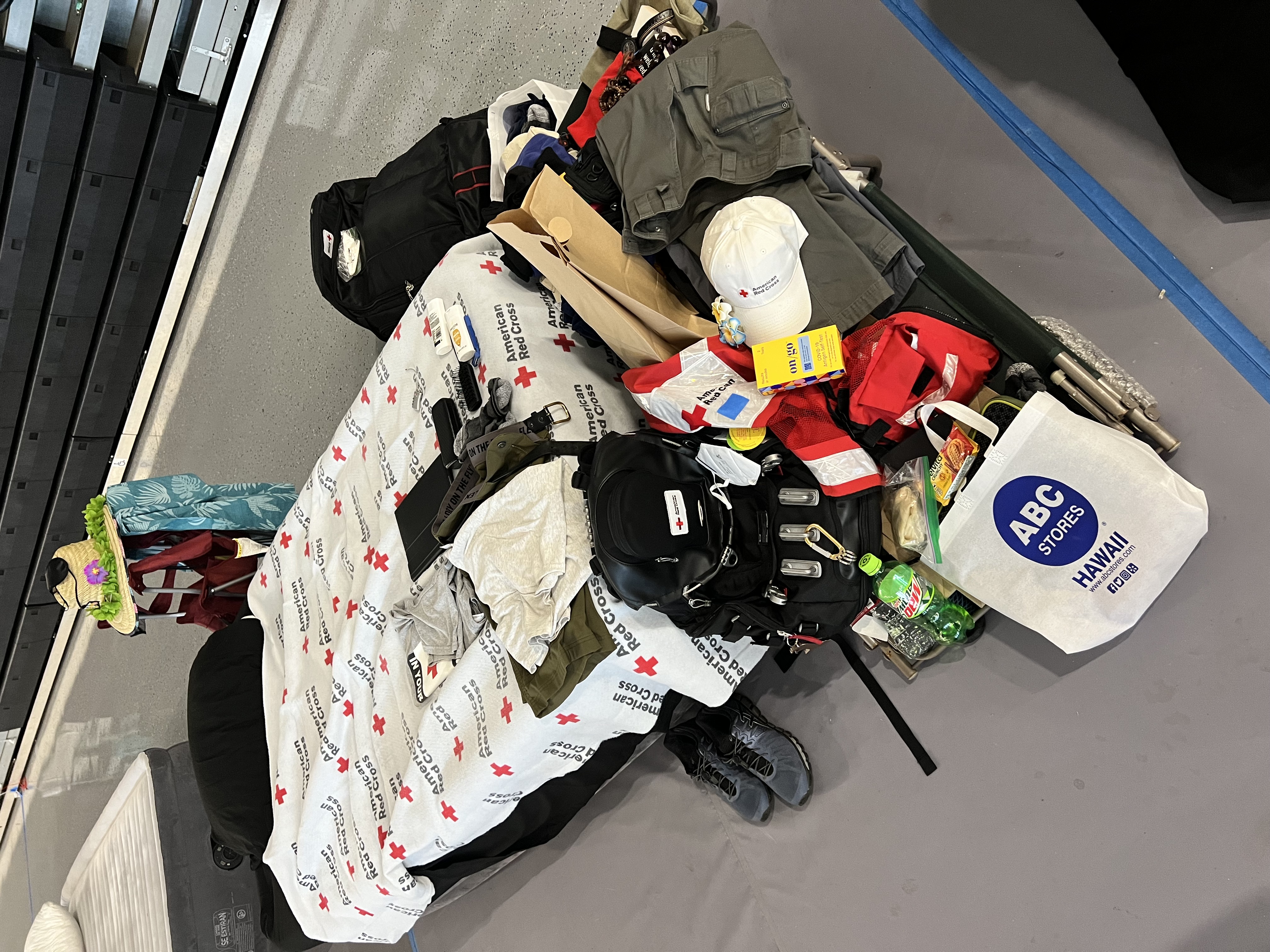Walter Roberts Jr., a retired licensed professional counselor. He became a Red Cross volunteer back in 2005 after seeing images on the news of people stranded on rooftops following Hurricane Katrina.
“I just couldn’t stand back and watch what I saw evolving in New Orleans,” Roberts said. “I felt that I had to do something. And at that time, they were requesting volunteers in the mental health area to come to New Orleans to help.”
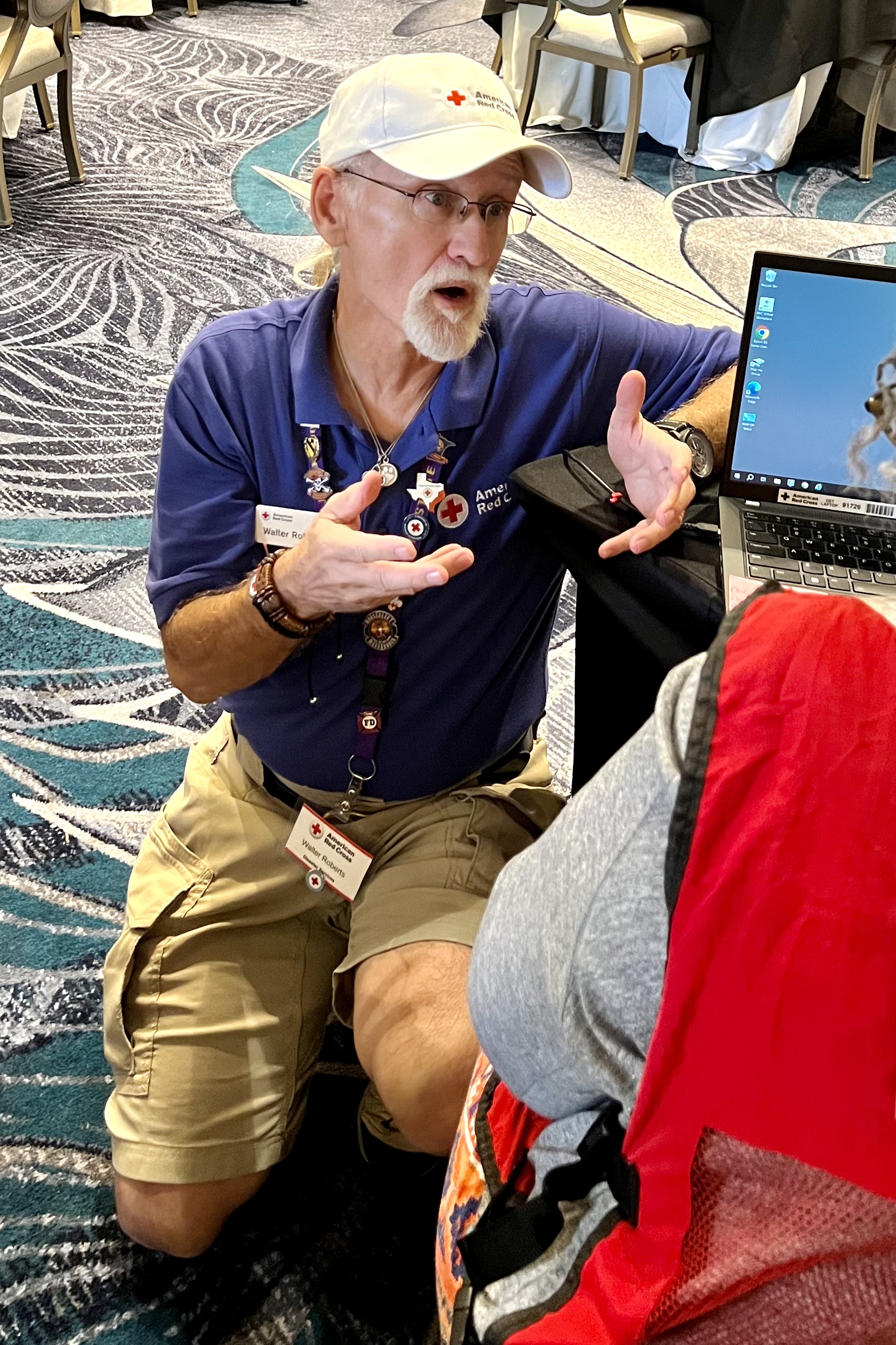
Over the years, Roberts has responded to many disasters as a mental health volunteer. He considers himself to be “pretty grizzled as a responder.”
Roberts, who lives near Branson, spoke to the Daily Citizen by phone on Sept. 13, just two days after returning from 20 days in Hawaii helping victims of the devastating wildfire earlier this month.
“I’ve seen a lot. I’ve heard a lot. I’ve heard a lot of pain. I’ve seen a lot of misery,” Roberts said. “From my perspective as a responder, this one has probably been one of the most difficult of all the ones that I’ve responded to because of the level of trauma individuals have experienced and the needs that our mental health responders have had to respond to.
“This particular tragedy was so large, so overwhelming for individuals,” he said. “Some of the stories I’ve heard kind of took my breath away.”
Deadliest U.S. wildfire in 100 years
According to Hawaii News Now, the wildfire began on Aug. 8 and was the deadliest wildfire in the U.S. in 100 years. The fires ravaged Maui and decimated the historic town of Lahaina, where Roberts was sent by the Red Cross.
The death toll was revised to 97 on Sept. 15, and the number of missing listed as 31.
“The firsthand accounts of individuals who escaped literally feet and inches ahead of the fire themselves, individuals who saw loved ones or acquaintances or friends die in the fire,” Roberts said, “I think those are the ones that probably have impacted me the most.”
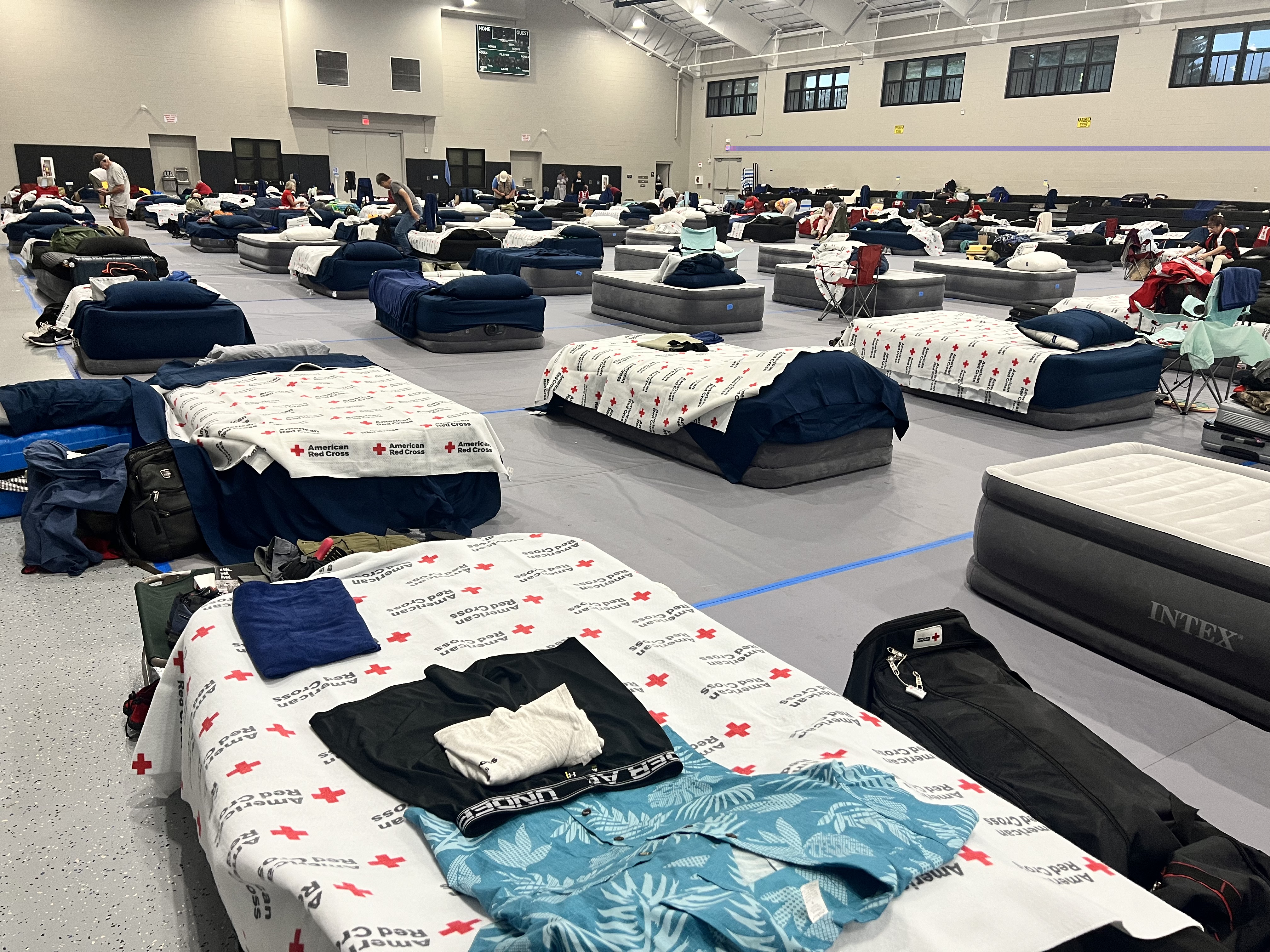
Roberts said a lot of people are just now beginning to emerge from wherever they’ve been staying — whether it's with a relative, a shelter or in their vehicles — and seeking assistance.
“And many of these individuals have been deeply impacted because they’re just now beginning to be able to put into words what they have experienced and what they have seen,” he said. “Certainly every disaster has its own unique characteristics. Every disaster impacts individuals in different ways. This one, however, was so large and so incomprehensible, in terms of the level of destruction.”
According to reporting in the Honolulu Civil Beat, more than 2,200 structures were destroyed. More than 1,500 of them were houses.
“The level of destruction was so total, that it’s very, very difficult for individuals to comprehend and make sense of exactly what happened,” Roberts continued. “There was a tremendous amount of chaos and a tremendous amount of confusion with regard to how the evacuations were handled. And individuals are just having a very, very difficult time processing exactly what happened.”
Many people not only have lost their homes, Roberts said, but they don’t know what has happened to friends and family because there’s still a large number of people on the missing list.
Though fatigued, volunteer plans to return
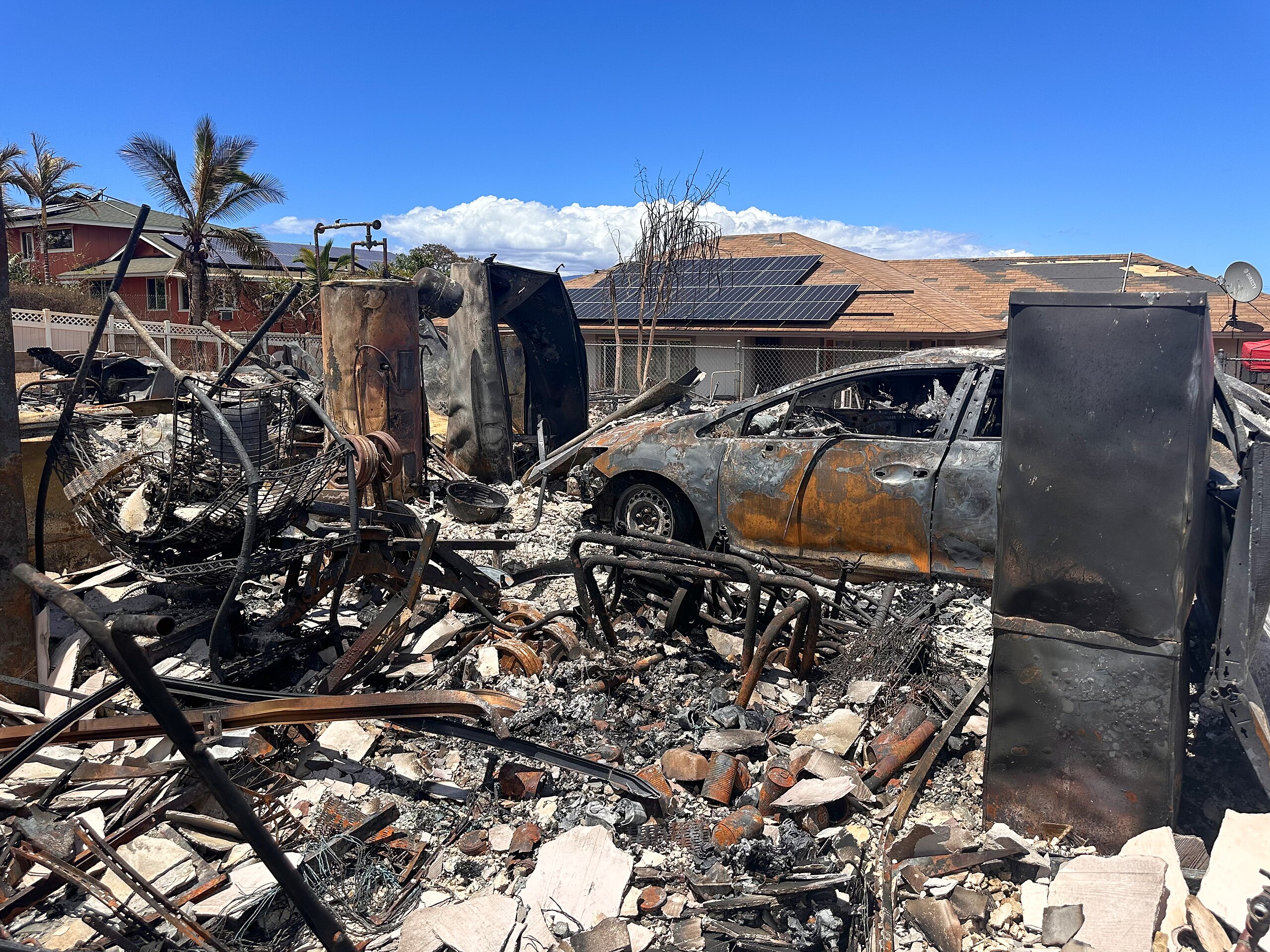
Roberts said he arrived in Maui on Aug. 24 and “literally hit the ground running” — a challenge considering the five-hour time difference.
“As soon as I checked into headquarters, they gave me a list of individuals to be contacting,” he said. “For the first three days, not only was I dealing with the trauma of the stories that were shared, but then also trying to get my sleep.”
Roberts said he still feels very tired. The Red Cross requires volunteers to take an entire day off every seven to eight days, which allows them to get much-needed rest.
“These are 12 to 18 hour days, and I will tell you that my fatigue level and exhaustion level begins to creep in a little quicker than it did wherever I first started,” the 67-year-old said. “These days get long and they are very intense. And we all have to be on our game. We all have to stay as sharp as we can.”
Still, Roberts said he plans to return to Maui for another volunteer stint.
“The people of Lahaina have suffered greatly, and anything that we’re able to do is just a small part of the needs that are there,” Roberts said. “We’re grateful to be able to provide assistance in some small way.”
What do disaster mental health volunteers do?
Roberts retired a few years ago from his career as an instructor with the counselor education program at Minnesota State University. He taught students on the topics of disaster mental health, crisis intervention and violence prevention.
He explained that disaster mental health volunteers with the Red Cross are basically doing triage for individuals who have been impacted by disasters.
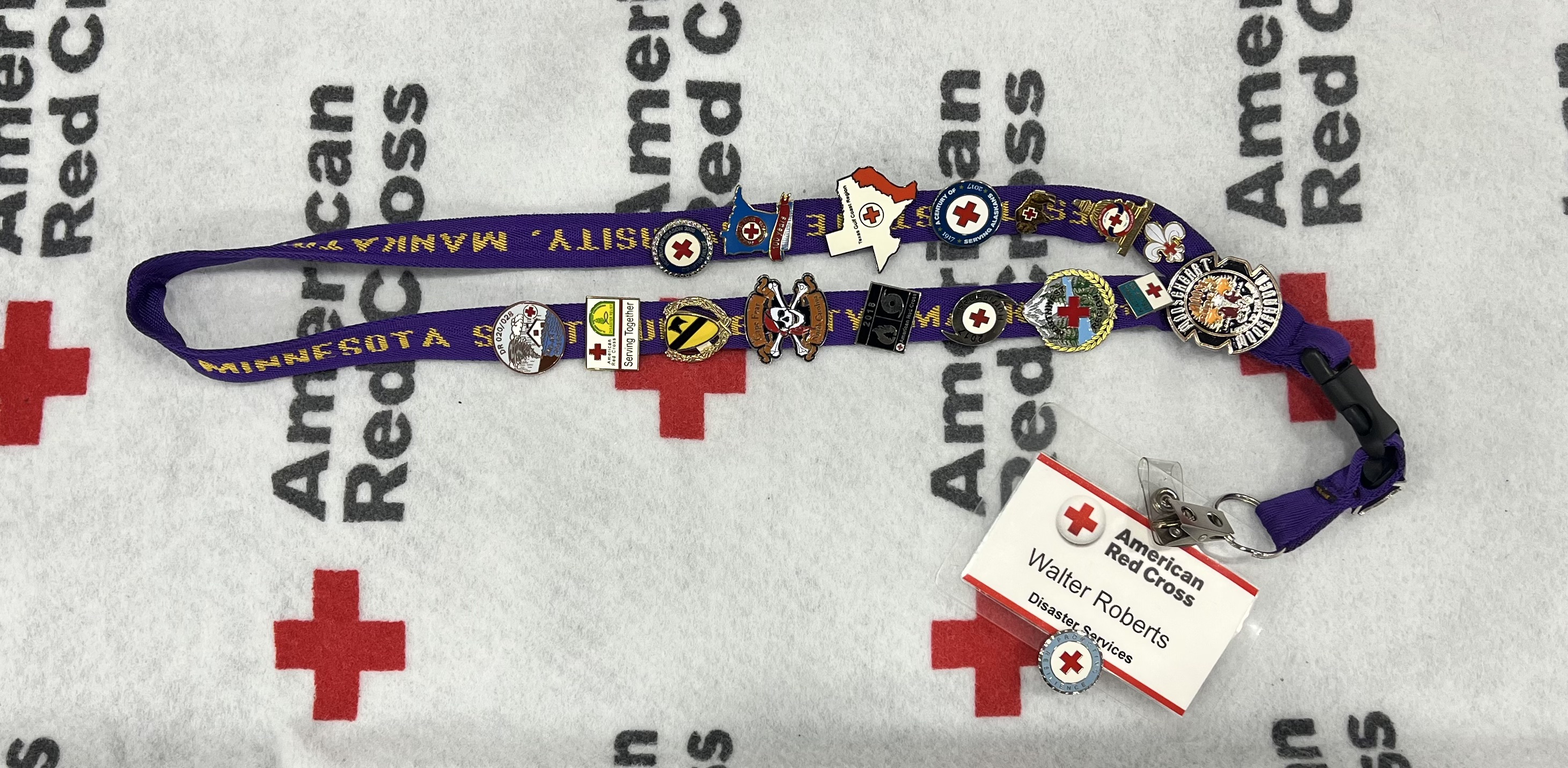
“Our primary goal is to meet the immediate demands that are in the field with individuals who have been impacted by disasters,” Roberts said. “This is not long-term therapy. This is trying to provide individuals with short-term coping mechanisms, making referrals with individuals who may need a longer-term therapeutic intervention with local resources.”
Following a disaster, either manmade or natural, people impacted are often in a state of shock, Roberts said. As time goes on, they may begin to realize the true impact of what happened.
“I always say that the individuals that I am most concerned about are the individuals who don’t communicate much, who may be so traumatized that they are not able to talk about their experiences,” he said. “We are not there to impose ourselves on anyone to talk about what they don’t want to talk about. We are there to listen and provide resources for them (and) to respond to where they happen to be at the moment.”
To learn more about volunteering with the Red Cross or helping the organization, visit redcross.org.
